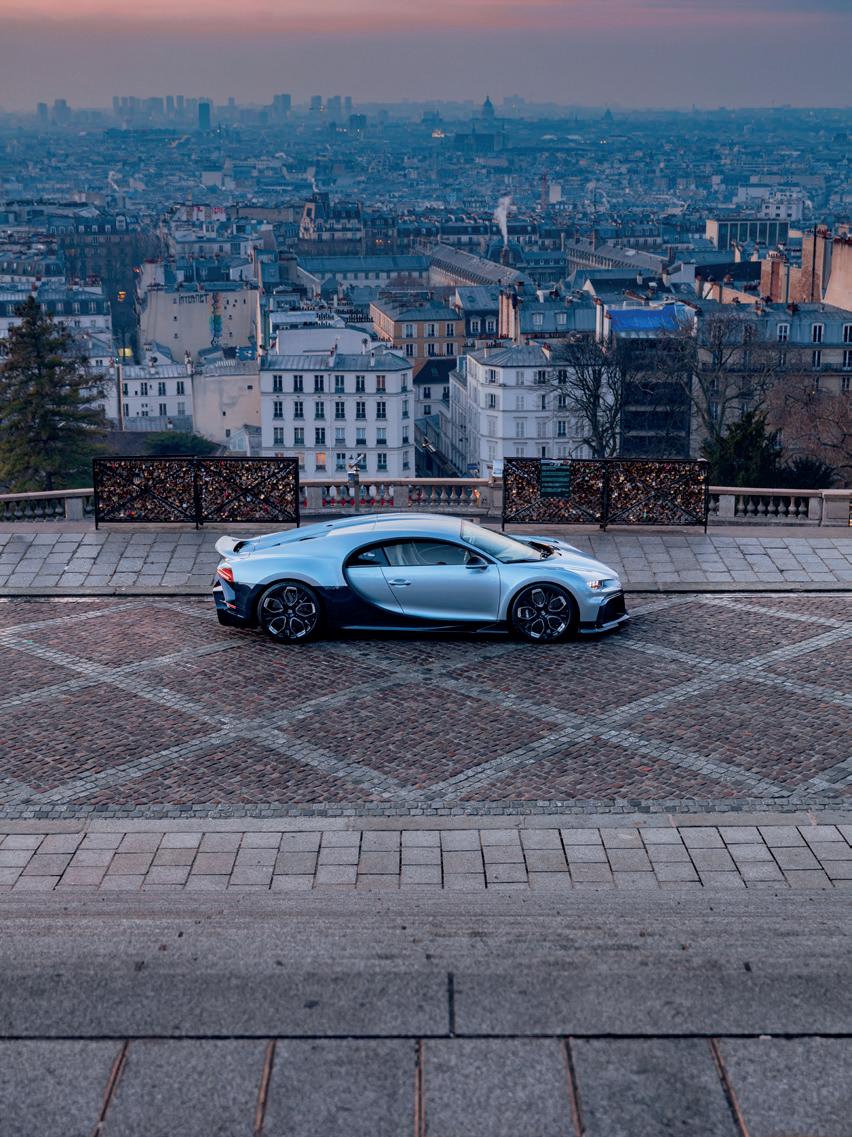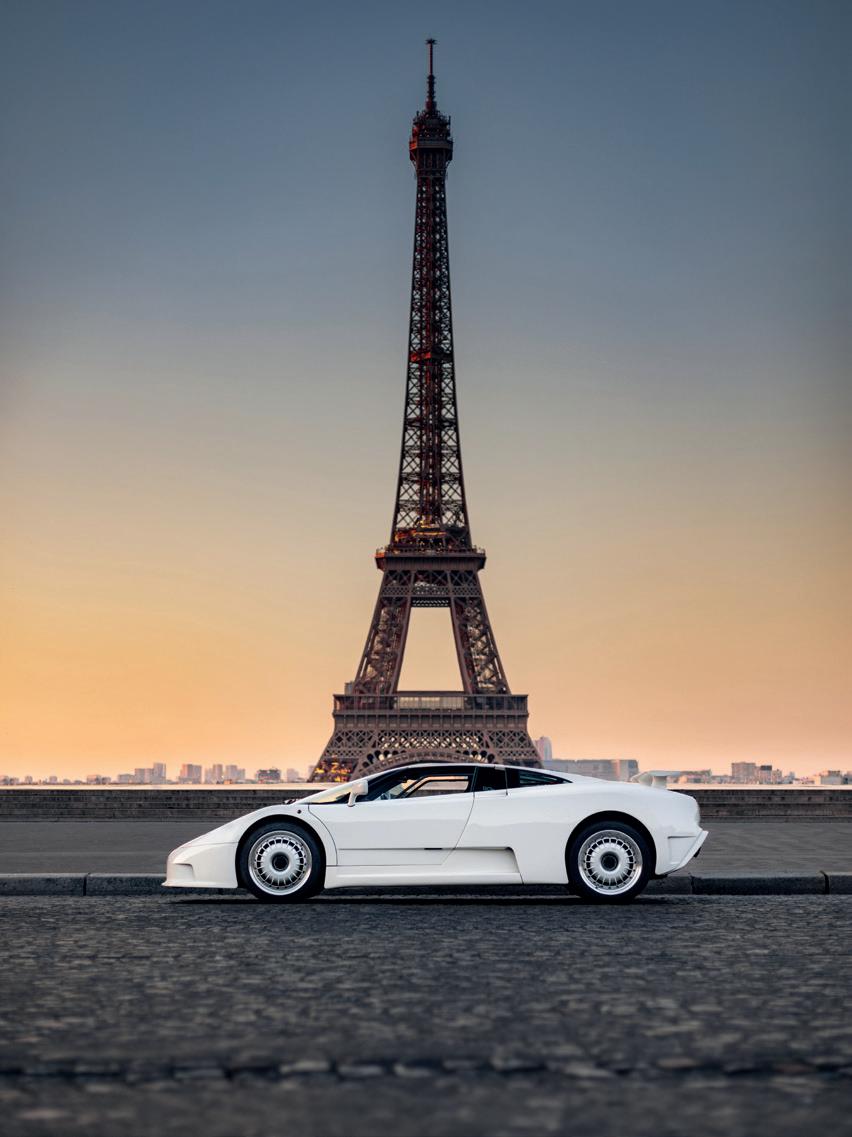
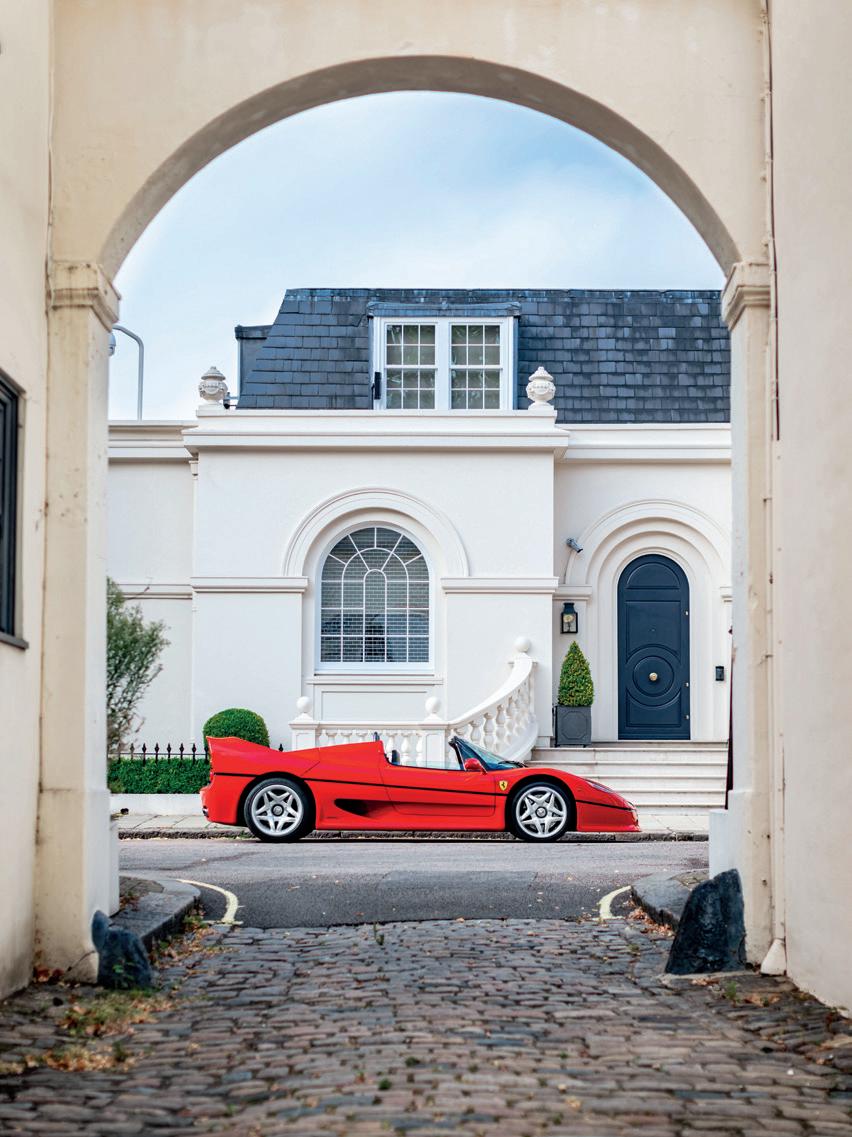
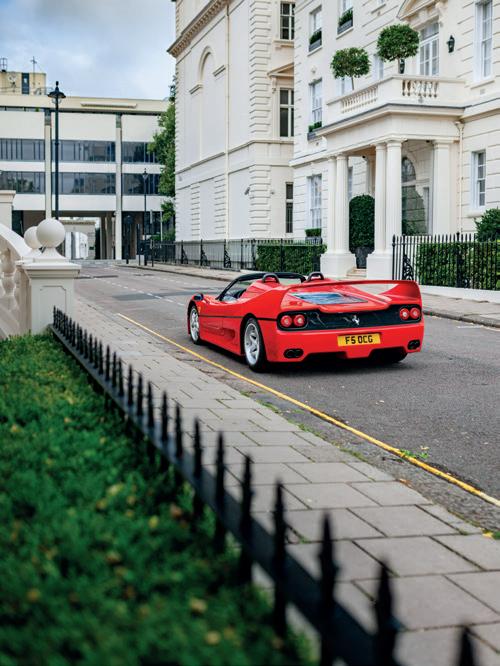
1995–1997
349 units produced V12 engine (4,699 cc)
520 hp
325 km/h




1995–1997
349 units produced V12 engine (4,699 cc)
520 hp
325 km/h
PARIS, FRANCE
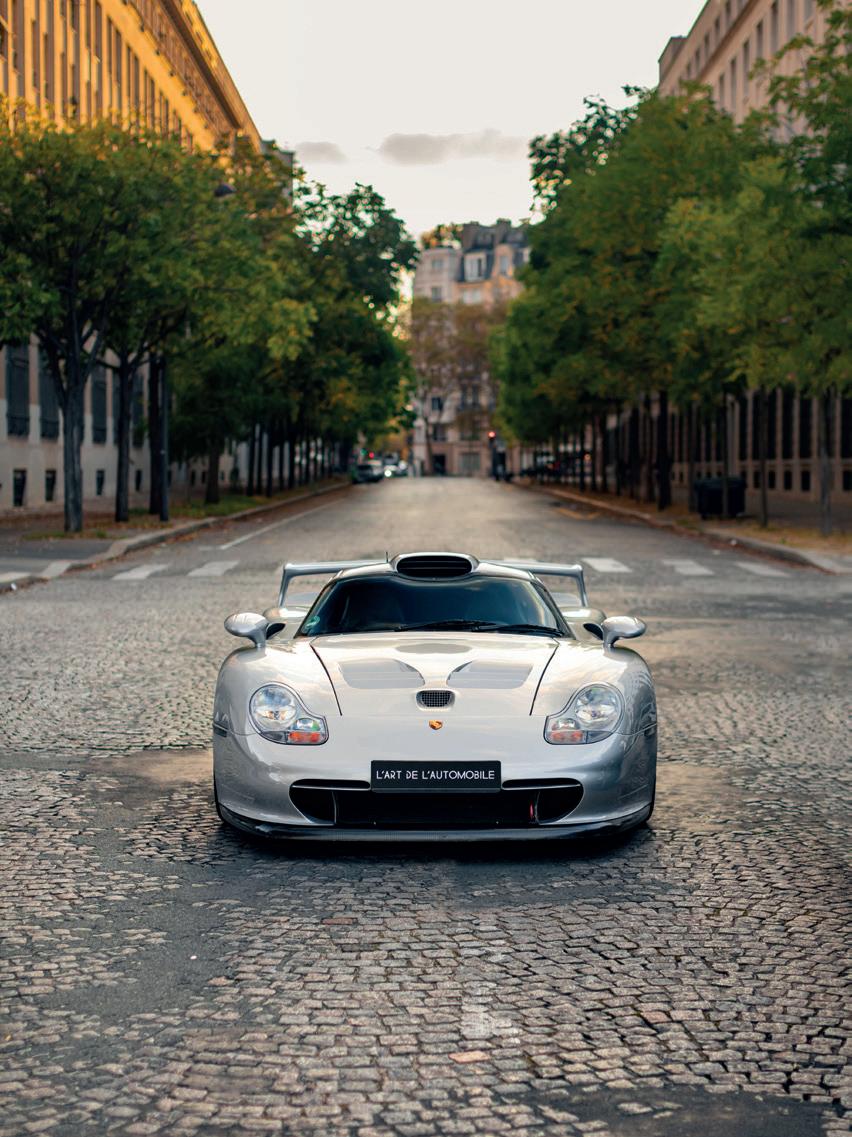
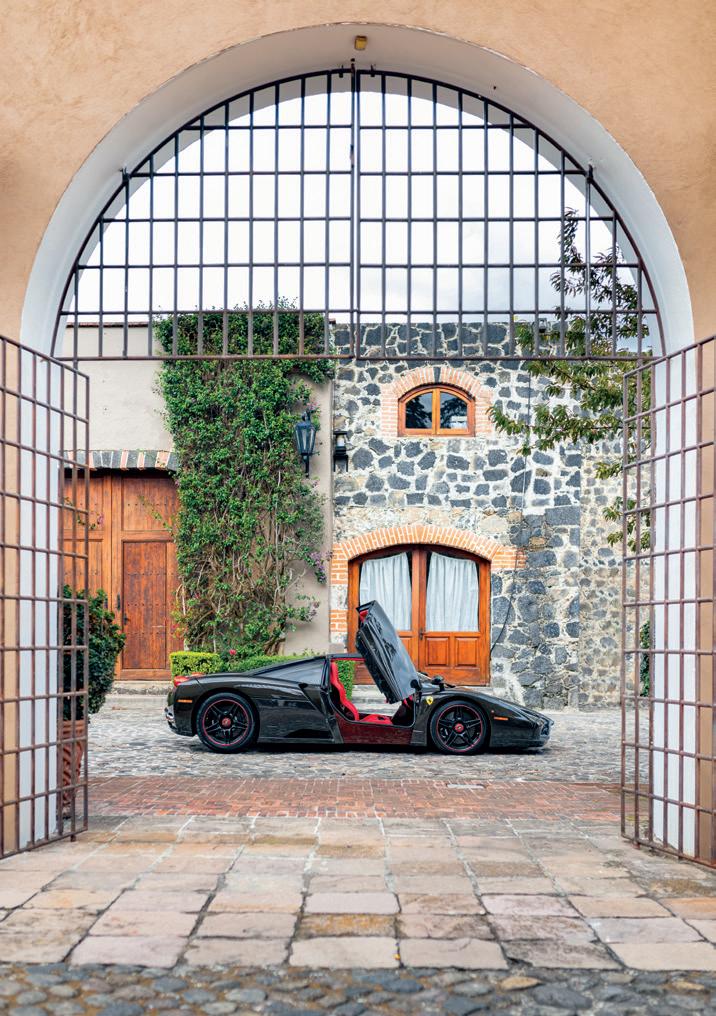
How do you make a Ferrari Enzo even more exclusive? Re-body it with a bare carbon shell. It's no longer a car, it's art.
The Ferrari Enzo, named after the brand’s legendary founder, represents the pinnacle of the Maranello-based company’s racing heritage and technical prowess. Introduced in 2002, it was designed to commemorate Ferrari’s domination of Formula 1 and to push back the boundaries of automotive innovation. Produced in just 399 examples, the Enzo remains a rare and coveted masterpiece, revered for its uncompromising performance and iconic status.
Photographed in a Mexican hacienda, the Ferrari Enzo stands like a masterpiece amid lush stables and gardens. Surrounded by thoroughbred horses, the Enzo evokes sophistication and power, its unique bare carbon-fibre body reflecting the serene tranquillity of its surroundings. In an environment of the freshsmelling hay and soft rustling leaves, the Enzo becomes more than just a car: it becomes a symbol of harmony between humanity, machine and nature.
One of the most striking features of the Enzo is its advanced aerodynamics, directly inspired by racing. The car’s aggressive design is optimised to maximise downforce and stability at high speeds, all without the use of unsightly spoilers. The car makes the most of the ground effect with a wide flat-bottom and a diffuser that press it to the ground, while electronically controlled moving parts adjust the aerodynamic downforce, enhancing the Enzo’s dynamic capabilities as required.
At the heart of the car is a 6.0-litre naturally aspirated V12 engine, developed specifically for the car, which delivers a staggering 660 bhp and 657 Nm of torque. Combined with a 6-speed semi-automatic transmission operated by paddles on the steering wheel, this formidable engine propels the Enzo from
0 to 100 km/h in just 3.6 seconds to a top speed of over 350 km/h, making it one of the fastest production cars of its era.
The Enzo’s chassis is constructed from carbon fibre and aluminium, resulting in a lightweight yet incredibly rigid structure that enhances agility and responsiveness. This advanced construction, combined with a sophisticated adaptative suspension system featuring push rod dampers, allows the Enzo to corner with precision and confidence, delivering an exhilarating driving experience that few cars can match.
In terms of technology, the Enzo is equipped with cutting-edge systems designed to enhance performance and safety. Carbon-ceramic brakes offer exceptional stopping power and fade resistance, ensuring consistent performance in difficult driving conditions. Electronic stability and traction control systems harness the Enzo’s prodigious power, giving drivers confidence-inspiring handling in a variety of driving situations.
The Enzo’s cockpit interior reflects its racing pedigree, with an emphasis on driver engagement and functionality. The minimalist dashboard features
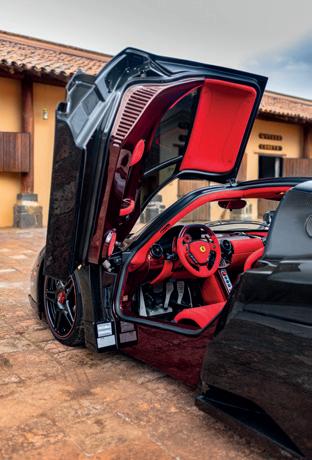
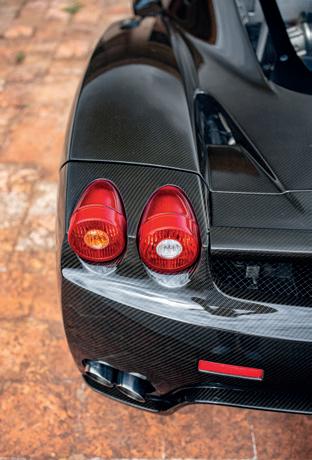
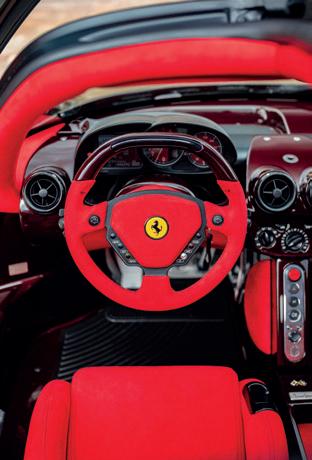
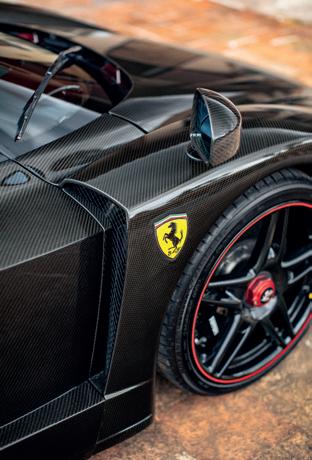
any imperfections in its weave.
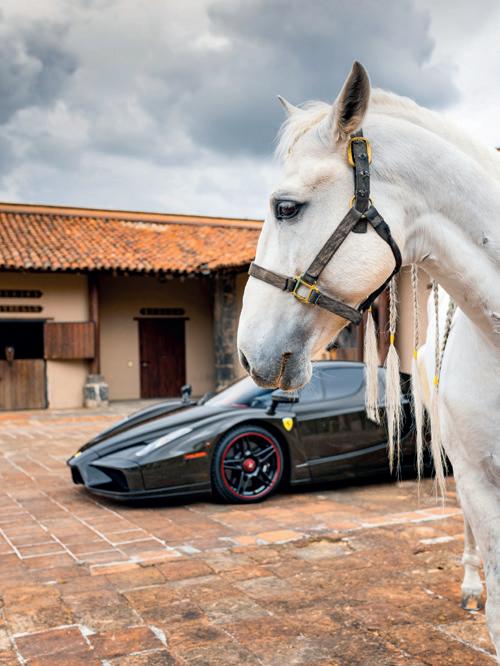
2002–2004
399 units produced V12 (5,998 cc)
660 hp
363 km/h
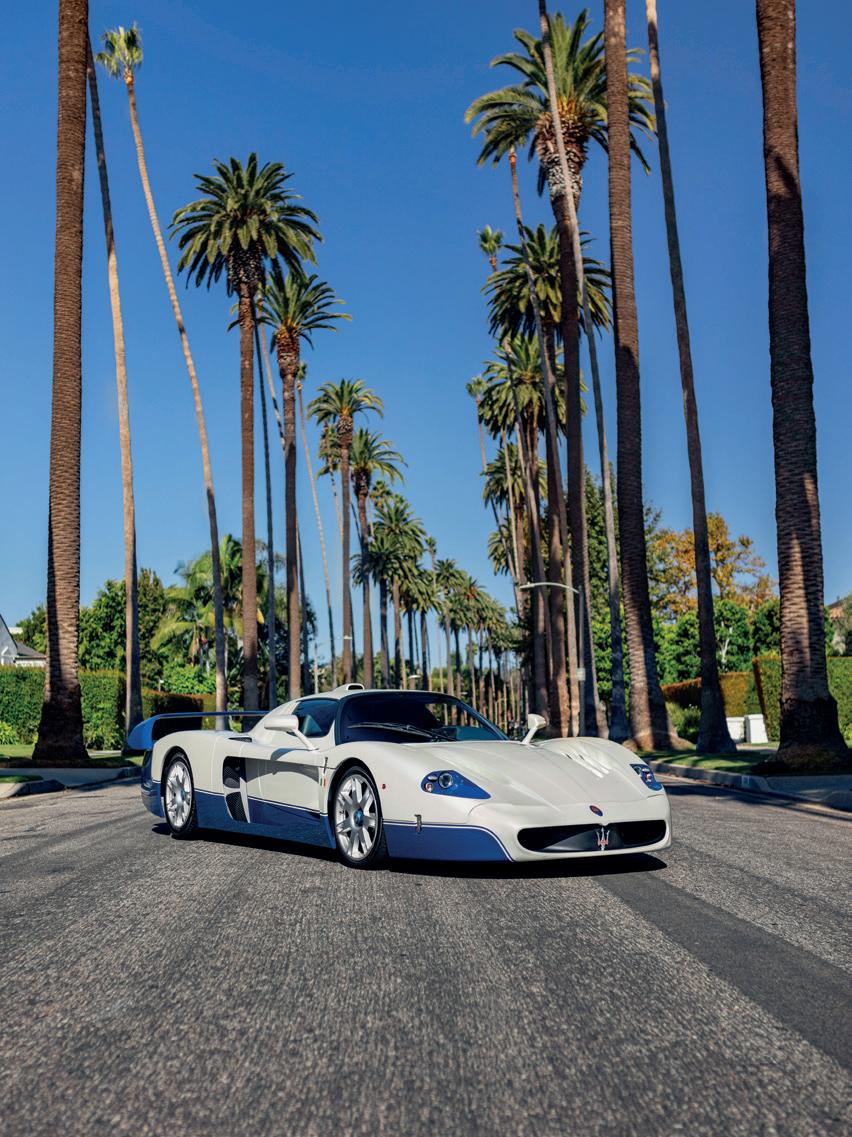
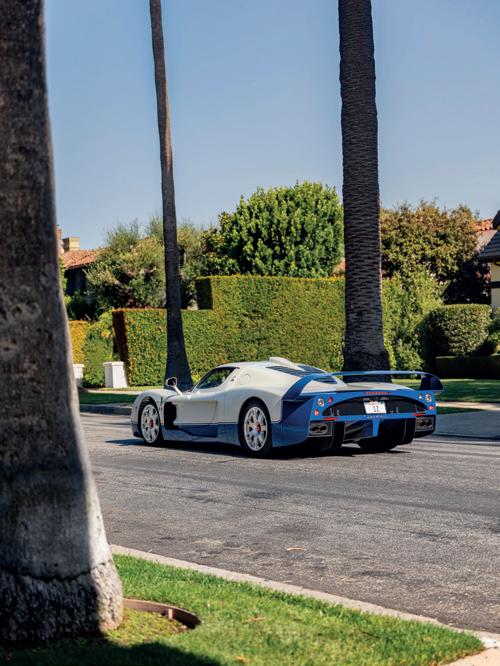
2004–2005
50 units produced V12 (5,998 cc)
630 hp
330 km/h
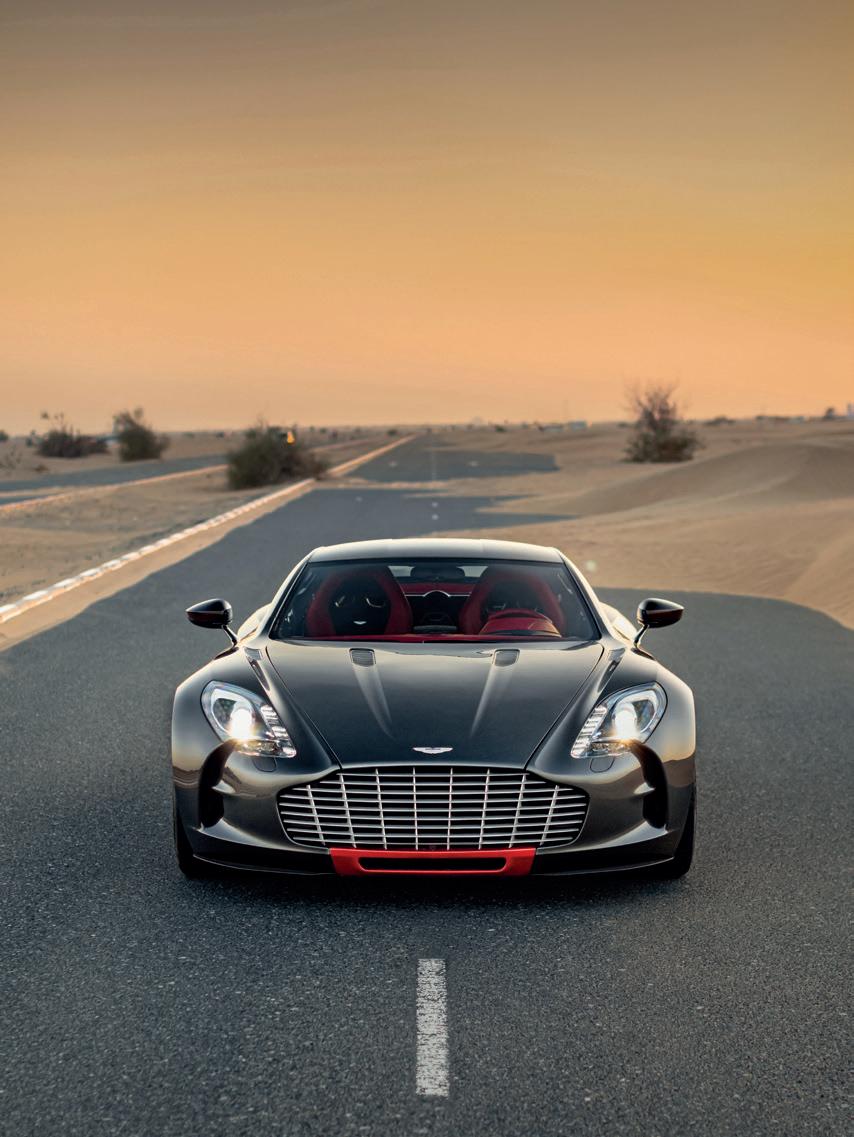
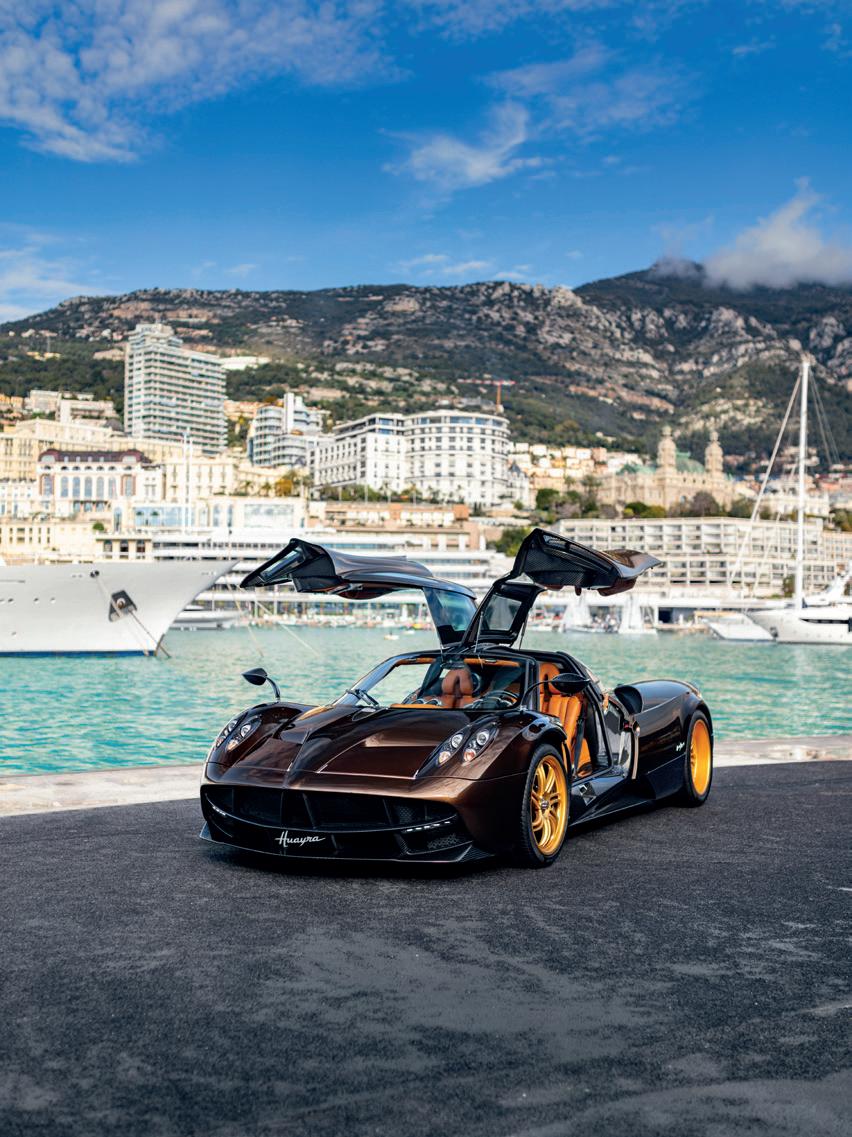
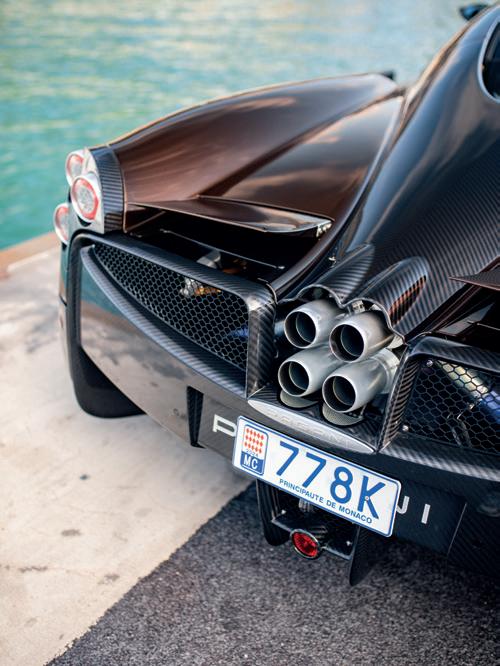
2011–2018
100 units produced (out of a total of 341 Huayra)
V12 twin-turbo engine (5,980 cc)
730 hp
360 km/h
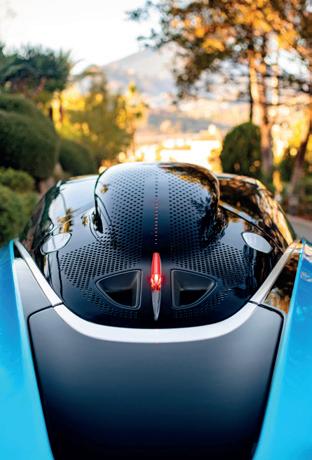
The engine's dual air intakes, separated by the third vertical brake light, are built into the roof so as not to disrupt the flow of air around the body.
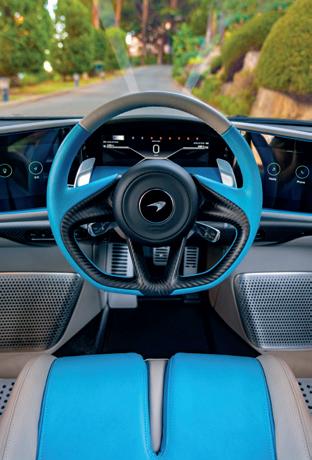
As on its glorious ancestor, the McLaren F1, the driving position is central, which also makes it possible to slim down the cockpit and reduce its frontal area.
flanked by two side passengers – a hallmark of its lineage. Echoes of the F1 resonate in subtle details, such as the shape of the small door windows. McLaren Automotive even limited production of the Speedtail to a mere 106 units – the same esteemed number as all F1 versions ever assembled. This deliberate choice not only underscores the exclusivity of the Speedtail but also honours the heritage and legacy established by its predecessor, further cementing McLaren’s position as a pioneer in the realm of hypercar engineering.
Bathed in the exclusive SLR Blue hue meticulously crafted by McLaren’s MSO department, our model radiates an unparalleled vibrancy that captivates the senses. Inside, the interior unfolds in a refreshing palette, featuring a harmonious blend of light blue and pristine white leather.
It’s as if the car extends an irresistible invitation to immerse oneself in the warmth of a Mediterranean evening along the picturesque Andalusian coast.
Envision taking a leisurely dip in the azure pool waters before embarking on a serene stroll through the verdant gardens of this estate, a location chosen for us by Magna Supercars, the custodians entrusted with the care of this exceptional vehicle.
McLaren has embarked on an extraordinary journey with its hypercars, uniting them under the prestigious banner of the Ultimate Series. The iconic F1 and groundbreaking P1 have pushed the boundaries of automotive innovation and performance. The Senna, with its stripped-down design, is focused solely on delivering pure driving sensations. In contrast, the Speedtail emerged as a harmonious response, embracing elegance and sophistication in every curve and contour. Following suit, the Elva epitomised openair exhilaration, and then came the Solus GT, a glimpse into the future of circuit racing. A question remains: what will be the manufacturer’s next surprise? It’s a mystery shrouded in anticipation: only time will unveil the next chapter in McLaren’s story. ■
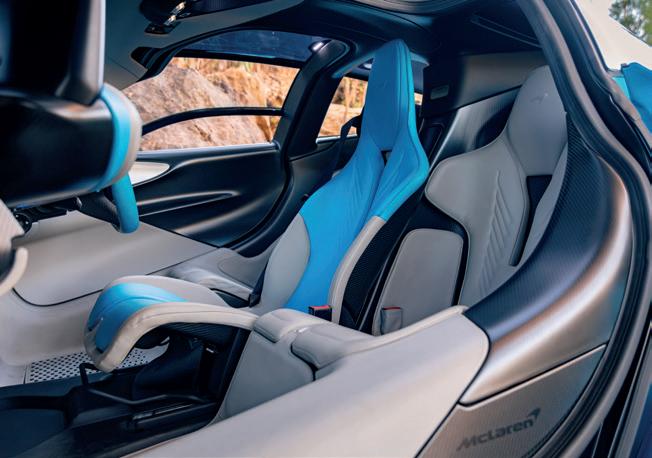
With the gearbox controls on the ceiling, the interior is airy. The instrumentation is rich in screens, not least for the retractable rear-view cameras that contribute to the aerodynamic purity.
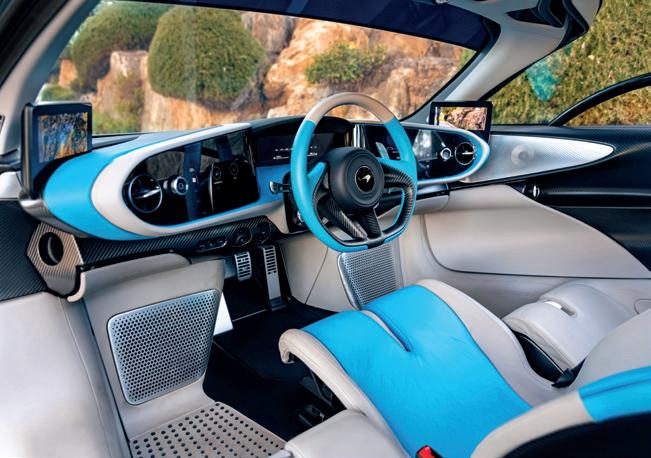
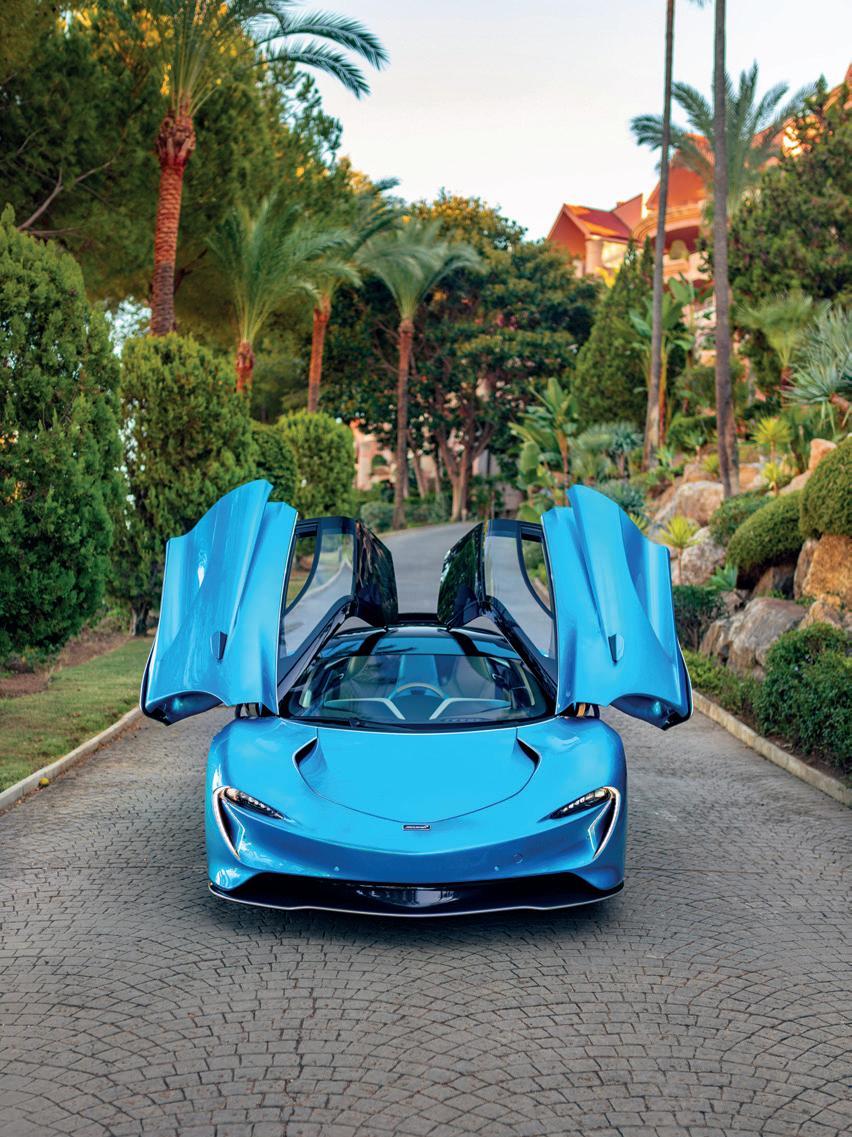
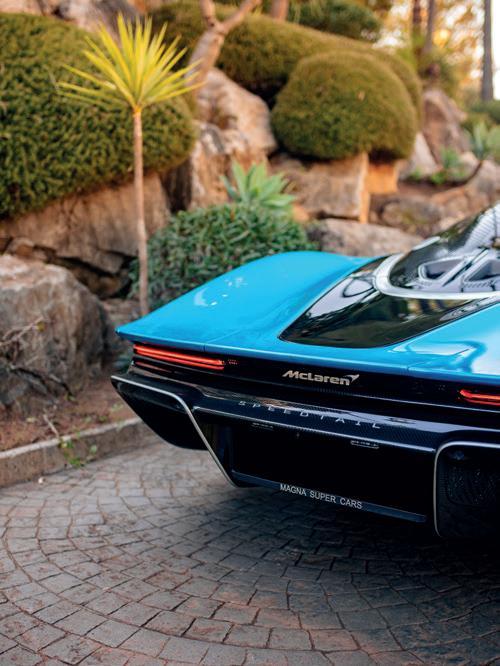
2020
106 units produced
V8 twin-turbo hybrid engine (3,994 cc)
1,070 hp
403 km/h
